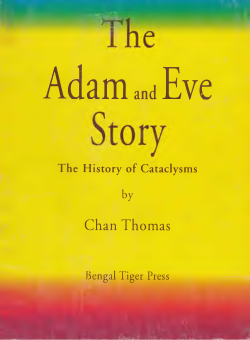Luke had a totally different view of the sequence of events. He didn’t even record whether Jesus said he was thirsty, as John did; he didn’t record the words Jesus spoke as Matthew and Mark did. Starting with the verse where he did agree with the others, let’s look at Luke 24: 44 through 46:
“44 And it was about the sixth hour, and there was a darkness over all the earth until the ninth hour.
45 And the sun was darkened, and the veil of the temple was rent in the midst.
46 And when Jesus had cried with a loud voice, he said, Father, into thy hands I commend my spirit: and having said thus, he gave up the ghost.”
You can see that Luke omitted the scene where Jesus spoke the words Matthew and Mark quoted and interpreted, and which many in the crowd thought were Jesus saying he was thirsty, and of which John thought so little of it that he merely quoted Jesus as saying “I thirst.” Luke also omitted the action, after Jesus’ strange words, of someone, thinking Jesus was thirsty, putting vinegar on a sponge, then putting the sponge on a reed, and giving the vinegar to Jesus. Matthew, Mark and John related this sponge and vinegar scene, which Luke omitted completely. It would seem that we should pass by Luke as a credible witness.
33
Now let’s discuss those words which Jesus spoke, so vividly described by Matthew and Mark.
“Eli, Eli, la-ma sa-bach-tha-ni” and “Eloi, Eloi, la-ma sa-bach-tha-ni”.
Both Matthew and Mark put a question mark after their quote of Jesus’ words.
When Jesus spoke them, he created quite a bit of confusion. Some said, “Hey, he’s calling Elias.” (Maybe he’ll come and save him!) Others said that he was thirsty. John said simply, “Jesus said, I thirst.”
Someone in the crowd, thinking Jesus had said he was thirsty, soaked a sponge in vinegar, put it on a reed and held it to Jesus’ mouth.
We must give immense credit to Matthew and Mark for writing down as best as they could the sounds of the words Jesus spoke. From what they wrote, we know that no such words existed in Hebrew at that time. Nor did they exist in Aramaic nor in Greek nor in any other language of which we know for that area and that time.
Why did Jesus, in his dying moments, use a language which no one else knew? The best Matthew and Mark could do was say “which is, being interpreted” and “that is to say”. Thank God for their honesty.
34
Pages: 1 2 3 4 5 6 7 8 9 10 11 12 13 14 15 16 17 18 19 20 21 22 23 24 25 26 27 28 29 30 31 32 33 34 35 36 37 38 39 40 41 42 43 44 45 46 47 48 49 50 51 52 53 54 55 56 57 58 59 60 61 62 63 64 65 66 67 68 69 70 71 72 73 74 75 76 77 78 79 80 81 82 83 84 85 86 87 88 89 90 91 92 93 94 95 96 97 98 99 100 101 102 103 104 105 106 107 108 109




